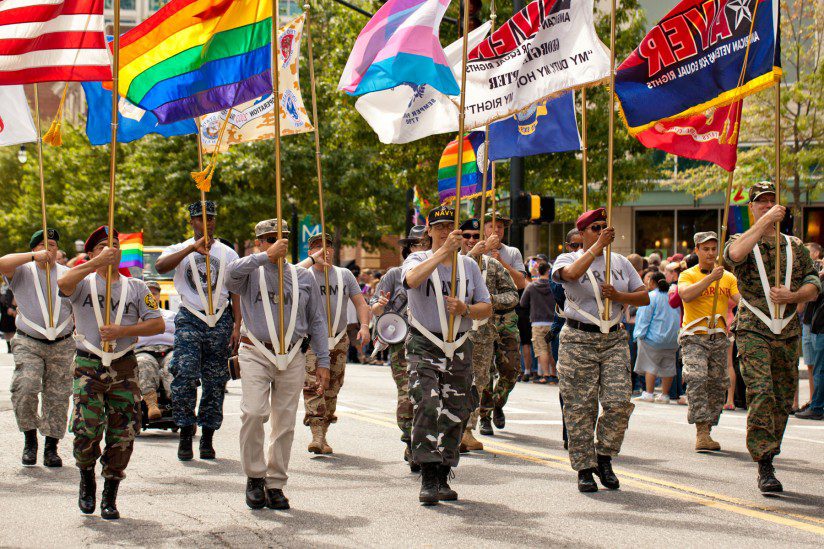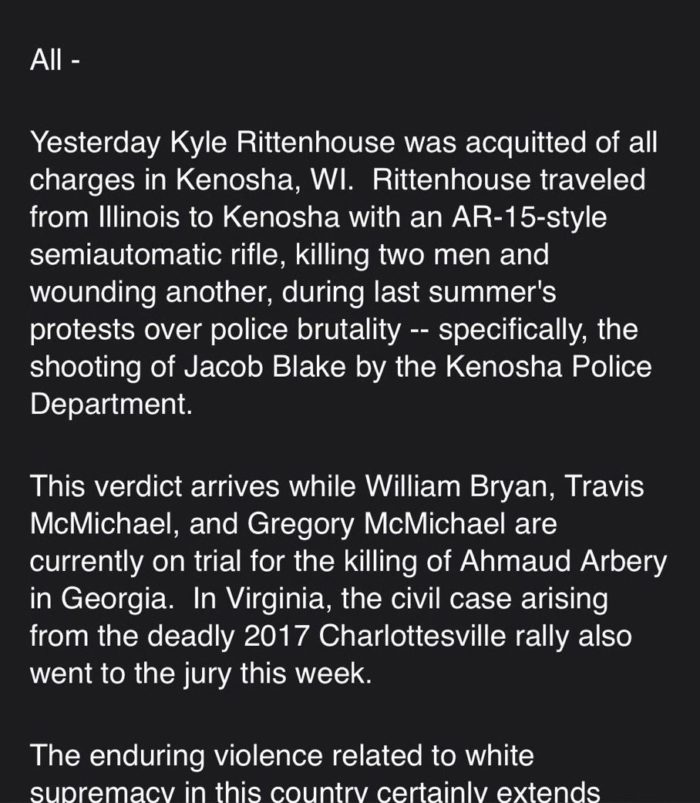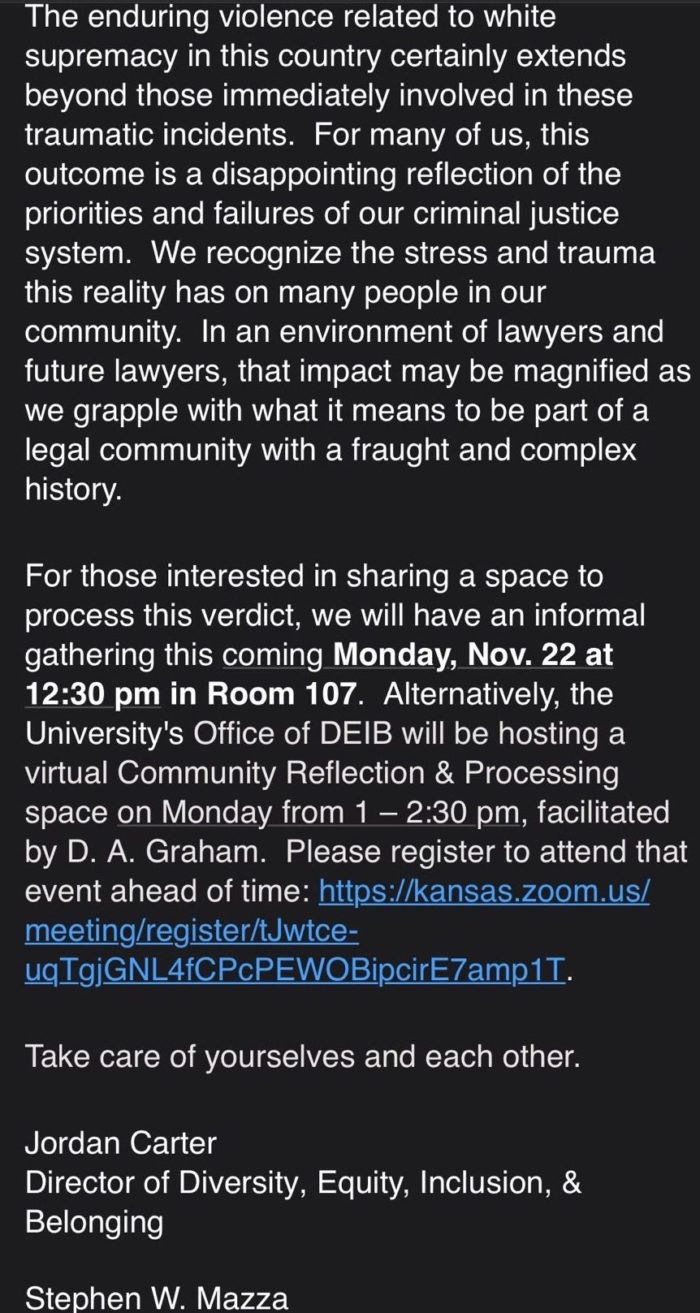The World On Fire

News from the world of our very healthy culture, from Carl Trueman:
Another week, another deathwork from a Catholic institution. This time it is Georgetown University. Last week, the university honored military servicemen and women by “queering” Veterans Day. Though the day traditionally commemorates those who have dedicated their lives—often at great, even ultimate, cost—to the service of their country, this event was a “celebration” of queerness. The immediate reason was the tenth anniversary of the repeal of “Don’t Ask, Don’t Tell” and the opening of the military to transgender people. According to the website of the Georgetown University Student Veterans Association, the ceremony involved reflection “on our Jesuit value of cura personalis, care for the whole person, and celebrate our queer sisters, brothers, and siblings.”
That even Veterans Day must be queered is a sign of our times. Pride Month is not enough, at least for the Q in the LGBTQ+ movement. To allow some space, physical or chronological, to remain free of queering would be to grant certain individuals—biological men and women, for example—a legitimacy and stability that queer theory rejects.
This capitulation to the spirit of the age is predictable (I wish I could say “shocking,” but Georgetown is a Jesuit institution, after all). But it is especially sad to see a nominally Christian university positively reveling in this spirit. Of course, this is the same Georgetown that has a community space for students to explore gender and sexuality, something that even the vice president for student affairs has admitted is rather difficult to square with Georgetown’s Catholic mission. That has not kept the president and provost’s offices from officially observing OUTober.
In fact, as any honest reading of the Christian faith would indicate, the notion that human beings can invent their own identities, detach their selves from their bodies, and indulge whatever fantasies they may have about who they are, is simply incompatible with the Bible and the church’s teaching.
Georgetown, of course, is only nominally Catholic, and gets away with what it does because there is no will within the Catholic leadership to “defend the brand,” so to speak. If you send your Catholic kid to Georgetown, you’d better pray hard that this Jesuit college doesn’t unwind their faith.
Georgetown doesn’t worship the Holy Spirit, but the Spirit of the Age: an era of total confusion in which the most culturally powerful forces commit themselves to negating every normative ordering of the world, in the name of liberation — and specifically, sexual liberation, and even more specifically, homosexuality. Homosexuality we have always had with us. What we have never had, as far as I know, is a culture in which the queer sensibility — that is, the desire to overturn order, especially sexual order, and to bring about, as Nietzsche put it, the “revaluation of all values” to extol what until yesterday was abnormal, and to stigmatize what is normal — has driven the culture’s leaders.
This piece from this past summer is funny, but not really:
It was April 2020 when a small group of friends, colleagues, and activists representing very diverse backgrounds and driven by different motivations found themselves wondering the same question: why are queer issues almost invisible in the Arctic? It was this simple question that brought us together with the ambitious goal of finding answers and taking action to make the “invisible” a bit more visible. What was initially convened as a meeting to discuss an Arctic conference proposal planned in the Fall of 2020 – postponed due to the ongoing pandemic – became a venue to raise awareness for queer people and their communities across time and space in the Arctic.
Over the last centuries, state policies and social norms in many societies, combined with colonial hegemonies over Arctic Indigenous peoples, have led to discrimination and stigmatization of individuals, households, and communities that for a variety of reasons do not comply, or do not want to comply, with mainstream heteronormative expectations and lifeways. These currents have also led to the loss or neglect of Indigenous concepts of gender and sexuality. In fact, Indigenous concepts of gender and sexuality were frequently exoticized and described as deviant in anthropological research at least until the 1960s.
If we define privilege as the absence of obstacles in pursuing interests, goals or careers, then the inequalities some individuals face become increasingly evident. Activists, including Indigenous activists, human rights organizations, academics and others have worked hard for the advancement and recognition of equal rights for LGBTQI2S+ communities in the Arctic, but discrimination based on sexuality and gender identity still deeply affect the people living in the region, including Indigenous and non-Indigenous peoples, researchers and visitors.
“Queering” the Arctic? Academics studying and celebrating queer Eskimos? Gosh, why not? Everything else is queer.
Ours is a revolutionary epoch. The disorder is profound, and it is spreading. This desire to queer everything is a manifestation of the collapse of internal order and normativity. This morning, my podcasting colleague Kale Zelden and I recorded an episode with Carl Trueman, in which Carl mentioned that queer theory is “the most honest” of all the critical theories, because it openly admits that it seeks to overturn all settled categories. (That podcast episode of The General Eclectic will be out later this week.) Towards the end, Carl said that perhaps the most important work of our time is recovering a sense of sacred order. If it does not exist, then we are doomed to live in this liquid world, until order reasserts itself (as it inevitably will — but only after an immense amount of destruction). I told him that this is the thrust of the book project I’m about to start.
I cannot recommend Carl’s most recent book — The Rise And Triumph of the Modern Self — strongly enough. If you have struggled to understand the chaos and auto-destruction of our civilization, this book is the key. In today’s podcast interview, I quoted Solzhenitsyn, from his 1983 Templeton Prize address:

We have descended much further than Solzhenitsyn could have imagined. And to this point, most of the Christian church remains quiet, and either afraid to speak up, or preparing itself for capitulation. In today’s interview, Trueman said, “The church is full of people who will find ten righteous reasons not to do the right thing.” Very, very true. The church also has people who are under the illusion that the primary, or even the only, response should be political. We absolutely should have a political response, but the idea that we are going to vote our way out of this mess is delusional — especially given how the acid bath of liquid modernity is collapsing standards and categories in the hearts and minds of individuals.
Kale sent me this Neil Shenvi book review essay about how critical theories are eviscerating the Evangelical mind today. Excerpt:
If the impossibility of disagreement is troubling, the far-reaching implications of these books’ arguments should be even more so. One might naïvely assume that their only goal is self-reflection and the narrow re-examination of particular points of doctrine. That is untrue, however, for two reasons.
First, in keeping with an intersectional framework, these books view white supremacy, patriarchy, heterosexism, and nationalism as mutually reinforcing and interlocking systems of oppression that can’t easily be disentangled, leading to phrases like “white evangelical patriarchy” or “white Christian nationalism.” For example, Barr explicitly cites Tisby’s comments on racism to elucidate sexism: “Jemar Tisby writes ‘racism never goes away. It just adapts.’ The same is true of patriarchy. Like racism, patriarchy is a shapeshifter — conforming to each new era, looking as if it had always belonged” (Barr, MBW, p. 186). Whitehead and Perry write that Christian nationalism “glorifies the patriarchal, heterosexual family as not only God’s biblical standard, but the cornerstone of all thriving civilizations.” Jones asks: “What if . . . conceptions of marriage and family, of biblical inerrancy, or even the concept of having a personal relationship with Jesus developed as they did because they were useful tools for reinforcing white dominance?” And in an incredibly revealing passage, Du Mez writes:
Within this expanding [evangelical] network, differences . . . could be smoothed over in the interest of promoting ‘watershed issues’ like complementarianism, the prohibition of homosexuality, the existence of hell, and substitutionary atonement . . . . Evangelicals who offered competing visions of sexuality, gender, or the existence of hell found themselves excluded from conferences and associations, and their writings banned from popular evangelical bookstores and distribution channels.
In all these passages (and many more I could cite), we find that the authors view their concerns as one part of a larger and seamless liberatory project. They are not merely aiming to challenge racism or specific interpretations of gender roles, but our understanding of marriage, sexuality, hell, inerrancy, and the gospel itself.
Second, these authors’ “deconstructive” approach to theology is necessarily a universal acid. Even if they weren’t explicitly committed to challenging evangelical doctrine broadly, their methodological approach makes such an outcome inevitable. This erosion is, perhaps, one of my greatest fears. I worry that pastors will embrace these books thinking that their application can be confined to, say, race alone. But once a white pastor endorses the view that he — as a white male — is blinded by his own white supremacy, unable to properly understand relevant biblical principles due to his social location, and in need of the “lived experience” of oppressed minorities to guide him, how long before someone in his congregation applies the same reasoning to his beliefs about gender? Or sexuality? At some point, he will have to reverse course and (correctly) insist that although he, like all of us, has blind spots and biases that will distort his understanding of Scripture, nonetheless it is to Scripture — properly interpreted — that we must appeal as our final authority on these issues.
In Nashville, someone I met showed me slides from teacher training in the city’s public schools, in which teachers were taught about the necessity to queer education, to make schools affirming places for the genderqueer, and how to deceive uncooperative parents, who are construed as the enemy. This is not Boston or San Francisco; this is Nashville. And yet, as our group discussed, Christians remain largely docile and accepting — or if they’re not accepting, then they console themselves with the false idea that if we elect a better school board, all this will stop. Well, we SHOULD elect a better school board! But these destructive ideas are thoroughly mainstream in the culture, and we cannot think that regaining some control over our schools — as necessary as that is — will be a sufficient response. Besides, as the Shenvi essay points out, if you accept the critical theory framework, it is impossible to keep it confined to race. It is the universal solvent of all hierarchies and standards of meaning.
This is happening right now. As Carl points out, technology has made it impossible to escape this. Over the weekend spent with some friends in Alabama, we were talking about the Metaverse concept, and how the masses are being conditioned to accept a false but pleasing facsimile of reality over reality itself. You can easily imagine a totalitarian regime keeping most people anesthetized with virtual reality technology, including VR porn, such that they are satisfied to live in this virtual world, receiving their monthly government check, while never getting off the couch. If you have a society in which people believe there is no such thing as ultimate meaning, and that the good life is the life that makes you feel good, then why not?
This culture of death is where the queering of everything is leading. This is where the universal application of critical theory under conditions of technopoly is taking us. Where is the resistance? Where? Don’t people see that the world is on fire?!
UPDATE: Look at the class of people who lead us:
Toronto District School Board superintendent vetoes student book event with Yazidi activist and Nobel Peace Prize laureate Nadia Murad because her memoir about being captured and sexually enslaved by Islamic State terrorists “would foster Islamophobia.”https://t.co/2hJIkCumB0
— Hillel Neuer (@HillelNeuer) November 21, 2021
About the Kyle Rittenhouse verdict, some of our institutions of higher learning are upset that the jury reached the politically incorrect verdict. Here’s some guidance from Douglas M. Haynes, Vice Chancellor for Equity, Diversity and Inclusion and Chief Diversity Officer at University of California Irvine:
The trial of Kyle Rittenhouse versus the State of Wisconsin concluded earlier today. The jury returned not guilty on all five counts of the original indictment (a sixth count was previously dismissed by the judge), including the murder of two people and the wounding of a third on August 25 in Kenosha, Wisconsin. The relief of the Rittenhouse family in this verdict was met by the heavy burden of the families mourning the absence of loved ones and the continuing trauma of the lone survivor.
The conclusion of this trial does not end the reckoning about systemic racism in the United States. If anything, it has simply made it more legible. Kyle Rittenhouse did not live in Wisconsin, but in Antioch, Illinois. He traveled to Kenosha during protests against police violence in the wake of the shooting of Jacob Blake while in police custody. Blake was shot seven times in the back. The Kenosha event continued protests in response to the killings of George Floyd on May 25, 2020 in Minneapolis and Breonna Taylor in St. Louis on March 13, 2020 in Louisville. These multi-racial protests were grounded in a call for racial justice and the end of police brutality. Rittenhouse imposed himself on the protests in Kenosha. His assistance was not requested. It was as much about resisting the calls of protestors as it was to defend property and render first aid.
For this reason, the verdict conveys a chilling message: Neither Black lives nor those of their allies’ matter.
UCI will continue its whole university approach to recognizing and responding to anti-Blackness as an existential threat to our mission as a public research university. Learn more on the UCI Black Thriving Initiative website.
Got that? This powerful university bureaucrat expresses the university’s view that the outcome of a trial halfway across the country was racist. He pays not the slightest attention to the facts that emerged in the trial. For Vice Chancellor Haynes, there was only one possible just outcome. Apparently the purpose of trials is not to determine an individual’s guilt or innocence, but to reassert political mythology. In this case too, it is reasonable to assume that Prof. Haynes is sending a warning shot to anyone in the university community that dissenting from his take on the Rittenhouse verdict might be viewed by the university as a racist act.
If you were at student, professor, or staffer at UC-Irvine, would you feel at liberty to speak out in favor of the jury’s verdict, or would you keep your mouth shut out of fear of being brought to Judge Haynes’s kangaroo court on charges of bigotry?
Meanwhile, this went out to law students at the University of Kansas:


Law students are supposedly unable to “process” the verdict in a criminal trial, without professional help. And they are directed by the diversity commissar AT A LAW SCHOOL to think that the verdict was a racist miscarriage of justice.
These people, our leaders, are building a system that will send people to prison for being the wrong color. I thought we had done a lot to put that kind of wicked system behind us.
What this is all leading to — all of the things I write about in this post, and more — is a crisis of legitimacy for our system. Over the weekend, I heard anecdotally from several people, both in person and in e-mail, that the warnings from enlisted soldiers, sailors, and airmen about staying away from the New Woke Military are amping up. People are starting to wonder if this baizuocracy is worth sacrificing for.
Subscribe for as little as $5/mo to start commenting on Rod’s blog.